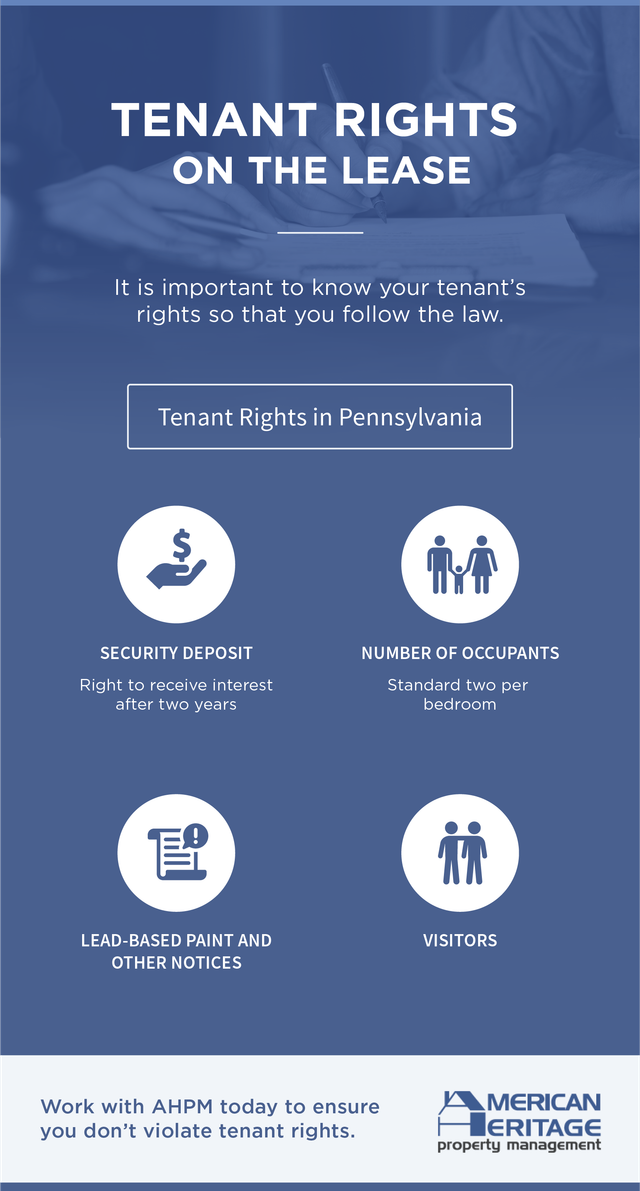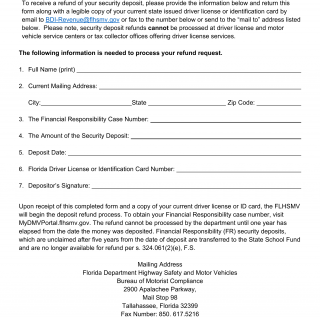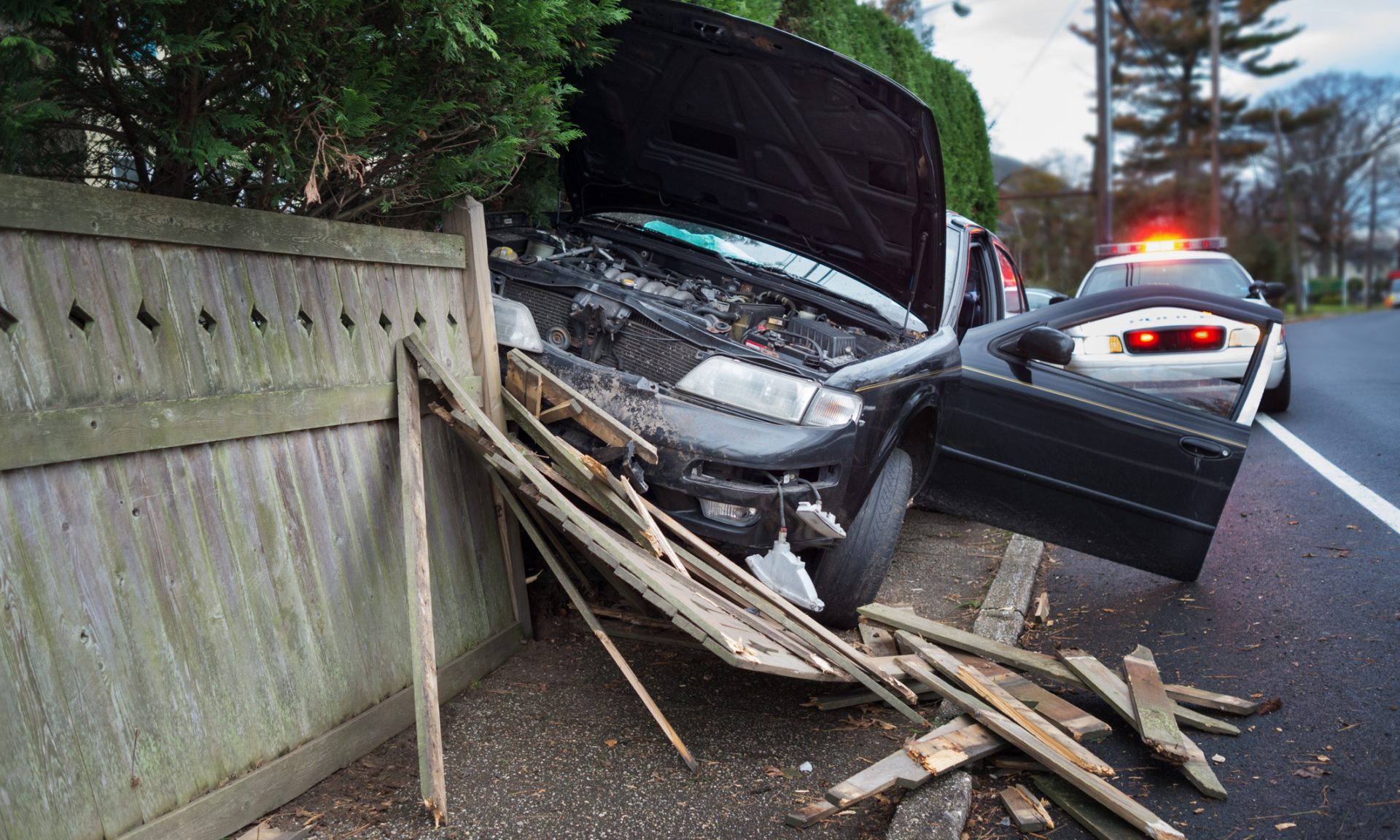
Navigating Tenant Rights and Responsibilities for Harmonious Living
Laura January 15, 2024 Article
Navigating Tenant Rights and Responsibilities for Harmonious Living
Renting a property comes with both rights and responsibilities for tenants. Understanding and adhering to these aspects not only ensures a positive living experience but also fosters a healthy landlord-tenant relationship. In this article, we will delve into the rights and responsibilities that tenants should be aware of to create a harmonious living environment.
Understanding Tenant Rights
Tenants have legal rights that protect their interests and ensure fair treatment. These rights encompass various aspects, including the right to a habitable living space, the right to privacy, and protection against discrimination. Familiarizing yourself with these rights is crucial for asserting your well-deserved privileges as a tenant.
Link to Tenant Rights and Responsibilities
For a comprehensive guide on tenant rights and responsibilities, visit Tenant Rights and Responsibilities. This valuable resource provides in-depth information to empower tenants with knowledge about their rights and responsibilities, promoting a harmonious living experience.
Paying Rent Timely and in Full
One of the primary responsibilities of a tenant is paying rent on time and in full accordance with the terms outlined in the lease agreement. Timely payments contribute to a positive relationship with the landlord and ensure the stability of the property.
Maintaining the Property in Good Condition
Tenants are responsible for maintaining the property in good condition. This includes keeping the premises clean, promptly addressing any damages caused by them, and informing the landlord about necessary repairs. A well-maintained property benefits both the tenant and the landlord.
Respecting Neighbors and Community Rules
Respecting neighbors and adhering to community rules are essential responsibilities for tenants. Being mindful of noise levels, following community guidelines, and fostering a considerate living environment contribute to harmonious relationships within the community.
Prompt Reporting of Repairs and Issues
Tenants are responsible for promptly reporting any needed repairs or issues within the property. This proactive communication allows landlords to address problems swiftly, maintaining the habitability of the living space and preventing minor issues from turning into major concerns.
Exercising Privacy Rights
While landlords have the right to access the property for certain reasons, tenants also have privacy rights. Landlords should provide advance notice before entering the premises, except in emergency situations. Respecting these privacy rights ensures a sense of security for tenants.
Renewing or Terminating the Lease Responsibly
Tenants have the responsibility to renew or terminate their lease responsibly. Communicating with the landlord well in advance of the lease expiration date allows for smooth transitions and helps landlords plan for property management.
Adhering to Legal Guidelines During Evictions
In unfortunate circumstances where eviction becomes a possibility, tenants have rights and responsibilities. Knowing and adhering to legal guidelines during the eviction process ensures fair treatment for all parties involved.
Link to Tenant Rights and Responsibilities
For a more detailed understanding of tenant rights and responsibilities, including legal guidelines during evictions, visit Tenant Rights and Responsibilities. This resource provides essential information to empower tenants and promote a harmonious living experience.
Resolving Disputes Amicably
Disputes between landlords and


Demystifying Security Deposit: What Tenants Should Know
Security deposits are a standard component of renting, designed to protect landlords and tenants alike. Understanding the intricacies of security deposit policies is crucial for tenants to ensure a smooth and fair rental experience. In this article, we will delve into key aspects of security deposit information that tenants should be aware of.
Link to Security Deposit Information
For a comprehensive guide on security deposit information, including legal insights and best practices, visit Security Deposit Information. This resource provides valuable information to empower tenants with knowledge about security deposit policies.
What is a Security Deposit?
A security deposit is a sum of money paid by the tenant to the landlord at the beginning of the lease term. It serves as a financial safeguard for the landlord against potential damages to the property or unpaid rent. Understanding the purpose of the security deposit is the first step for tenants.
Determining the Amount of the Security Deposit
The amount of the security deposit is usually determined by the landlord and is often equivalent to one or two months’ rent. It’s important for tenants to be aware of the specific amount and terms related to the security deposit outlined in the lease agreement.
Link to Security Deposit Information
To explore details about determining the amount of the security deposit and related terms, visit Security Deposit Information. This resource offers insights into factors that influence the security deposit amount.
Conditions for Security Deposit Refund
Security deposits are refundable, but certain conditions must be met for tenants to receive the full refund. These conditions typically include returning the property in the same condition it was rented, adhering to the terms of the lease agreement, and fulfilling any financial obligations.
Prompt Reporting of Damages
Tenants play a crucial role in ensuring a smooth security deposit refund process. Promptly reporting damages to the landlord and addressing necessary repairs during the lease term can prevent issues at the end of the tenancy. This proactive approach is in line with responsible tenancy practices.
Link to Security Deposit Information
To explore the importance of prompt reporting of damages and proactive tenancy practices, visit Security Deposit Information. This resource provides insights into maintaining the property and ensuring a smooth security deposit refund process.
Documenting the Property’s Condition
Both tenants and landlords benefit from thorough documentation of the property’s condition at the beginning and end of the lease term. This documentation can include written descriptions, photographs, or video recordings. Comprehensive documentation serves as evidence in case of disputes regarding damages.
Dispute Resolution Procedures
In the event of a dispute over the security deposit refund, tenants should be aware of the dispute resolution procedures outlined in the lease agreement or local regulations. This may involve mediation, arbitration, or legal action if an agreement cannot be reached.
Link to Security Deposit Information
To explore dispute resolution procedures and best practices in handling security deposit disputes, visit Security Deposit Information. This resource provides valuable

Navigating Property Damage Policies for Tenants and Landlords
Laura January 5, 2024 Article
Navigating Property Damage Policies for Tenants and Landlords
Understanding property damage policies is essential for both tenants and landlords to ensure a smooth and transparent rental experience. In this article, we will explore the intricacies of property damage policies, shedding light on the rights and responsibilities of both parties involved.
Link to Property Damage Policies
For a comprehensive guide on property damage policies, including legal insights and best practices, visit Property Damage Policies. This resource provides valuable information to empower tenants and landlords with knowledge about property damage policies.
Tenant’s Responsibility for Property Maintenance
Tenants have a responsibility to maintain the property in good condition throughout their lease term. Regular upkeep, addressing minor repairs promptly, and following any maintenance guidelines outlined in the lease agreement contribute to the overall well-being of the property.
Reporting Damages and Maintenance Issues Promptly
Prompt reporting of damages and maintenance issues is crucial for tenants. Communicating with the landlord as soon as an issue arises allows for timely repairs, preventing the problem from escalating. This proactive approach is in line with most property damage policies and ensures a well-maintained living space.
Link to Property Damage Policies
To explore the importance of reporting damages promptly and adhering to property maintenance responsibilities, visit Property Damage Policies. This resource provides insights into the expectations outlined in property damage policies.
Understanding Property Damage Policies in Lease Agreements
Lease agreements typically outline property damage policies, specifying the responsibilities of both tenants and landlords. It’s crucial for tenants to thoroughly read and understand these policies before signing the lease. Knowing what is expected in terms of property maintenance and damage resolution helps avoid misunderstandings later.
Security Deposits and Property Damage
Security deposits are a common component of property damage policies. Landlords often require a security deposit to cover potential damages beyond normal wear and tear. Understanding the terms and conditions related to the security deposit, including how it will be handled at the end of the lease, is essential for tenants.
Link to Property Damage Policies
To gain insights into security deposits and their relation to property damage policies, visit Property Damage Policies. This resource provides valuable information on navigating security deposit expectations and guidelines.
Landlord’s Responsibility for Property Maintenance
Landlords also have a responsibility to maintain the property in a habitable condition. This includes addressing structural issues, ensuring the property meets health and safety standards, and promptly responding to tenant-reported damages. Landlords must adhere to property maintenance guidelines outlined in lease agreements and local regulations.
Resolving Disputes Regarding Property Damage
Disputes may arise between tenants and landlords regarding property damage and responsibility for repairs. Property damage policies often include procedures for resolving such disputes. Mediation or arbitration may be recommended to reach a fair resolution without resorting to legal action.
Link to Property Damage Policies
To explore dispute resolution procedures and best practices in handling property damage disputes, visit Property Damage Policies. This resource provides valuable insights into navigating disputes while adhering to property damage policies.


Effective Landlord-Tenant Communication Strategies
Landlord-tenant communication is a critical element in fostering a positive and harmonious rental experience for both parties involved. Establishing clear and open channels of communication can help prevent misunderstandings, address issues promptly, and create a conducive living environment. In this article, we will explore various strategies for enhancing communication between landlords and tenants.
Understanding Tenant Needs
One fundamental aspect of effective communication is understanding the needs of your tenants. Regularly engage in conversations to learn about their concerns, preferences, and any maintenance requests they may have. By actively listening and addressing their needs, you demonstrate a commitment to their well-being and satisfaction.
Clear Lease Agreements
The foundation for successful landlord-tenant communication starts with a well-drafted lease agreement. Clearly outline expectations, responsibilities, and policies in the lease document to avoid confusion. Having a transparent and comprehensive agreement helps set the stage for effective communication throughout the lease term.
Prompt Responsiveness
Timely responses to tenant inquiries or concerns are crucial for building trust. Whether it’s a maintenance issue or a general inquiry, acknowledging and addressing it promptly shows that you value your tenants’ concerns. Utilize various communication channels, such as email or a dedicated online portal, to ensure accessibility and responsiveness.
Regular Check-ins
Establish a routine for regular check-ins with your tenants. This can be in the form of periodic emails, phone calls, or even in-person meetings. These check-ins provide an opportunity to address any emerging issues, gather feedback, and strengthen the landlord-tenant relationship. Consistent communication helps create a sense of community and support.
Utilize Technology
In today’s digital age, leveraging technology can significantly enhance communication. Consider implementing online platforms or apps that facilitate easy communication between landlords and tenants. These tools can streamline processes, provide real-time updates, and serve as a convenient channel for sharing important information.
Open Door Policy
Encourage an open door policy where tenants feel comfortable reaching out to you with their concerns. Foster an environment where communication is not only welcomed but actively encouraged. This openness creates a positive atmosphere and allows for quick resolution of issues before they escalate.
Addressing Disputes Amicably
Disputes may arise during the course of a lease, and how they are handled can impact the overall relationship. When conflicts arise, approach them with a solution-oriented mindset. Mediate disputes amicably, seeking compromise and resolution to maintain a positive landlord-tenant dynamic.
Educational Communication
Provide educational materials or resources to tenants, especially those new to renting. This could include guides on property maintenance, emergency procedures, or local resources. Empowering tenants with information contributes to a more informed and responsible community.
Community Engagement
Create opportunities for community engagement among your tenants. This could involve organizing social events, creating online forums, or establishing a community newsletter. Building a sense of community fosters positive relationships and encourages open communication among tenants.
Continuous Improvement
Regularly evaluate and seek feedback on your communication methods. Use feedback to identify areas for improvement and adjust your approach accordingly. A commitment to continuous improvement demonstrates your dedication to fostering
- Total visitors : 1,906
- Total page views: 2,078
Recent Posts
- Trusted In-Home Furniture Movers Near Me Hassle-Free Moving
- The Cost to Move a 3-Bedroom House Budgeting Tips & More
- Elite Custom Home Contractors Craftsmanship Beyond Compare
- Cozy Up Your Space with Comfortable Living Room Furniture
- Revamp Your Home’s Exterior Stunning Renovation Ideas
- Nursing Home Furniture Comfortable and Functional Designs
- “Elevate Your Patio DIY Outdoor Seating Area Projects”
- Country Decorating Ideas Bring Rural Beauty Indoors
- Pathways to Perfection Front Yard Walkway Concepts
- Budgeting for a Cross Country Move 1 Bedroom Apartment Costs
- Embrace Modern Elegance Contemporary Decor Style Ideas
- Revitalize Your Home Expert Construction Remodeling”
- Unveiling Full Gut Renovation Costs What to Expect
- Explore Chic and Stylish Ashley Home Furniture Near Me
- Explore Modern Comfort at Ashley Furniture USA’s Collections
- Rich’s Outdoor Furniture Enhance Your Outdoor Oasis Today
- Blooming Brilliance Garden Centerpiece Inspiration
- Al Fresco Haven Transform Your Patio with Stylish Decor
- Reviving History Colonial Kitchen Renovation Ideas
- Elevate Your Home with Union Home Furniture Collection
- Sleek Steel Designs Elevate Your Space with Steel Furniture
- Transform Your Garden DIY Solar Fountain Inspirations
- Local House Movers Your Trusted Partners in Moving
- Cool and Comfortable DIY Shade Solutions for Backyards
- Blossoming Beauties Flower Landscaping Ideas for Your Yard
- Transform Your Basement Finishing Floor Options Explained
- Elevate Your Outdoor Space with Best Quality Patio Furniture
- Discover Timeless Elegance at the Ashley Furniture Showroom
- Urban Chic Stylish Wall Painting Ideas for Modern Spaces
- Elevate Your Space Living Room Interior Design Ideas
Categories
- About
- Business
- Business Checks
- Business Checks
- Business Ideas
- Business Ideas
- Business Insider
- Business Insider
- Business Letter
- Business Letter
- Business Line
- Business Line
- Business News
- Business News
- Business News Articles
- Business News Articles
- Business Owner
- Business Owner
- Business Plan
- Business Plan
- Business Website
- Business Website
- Business Week
- Business Week
- Economic News
- Economic News
- Finance
- Financial News
- Financial News
- General Article
- Google My Business
- Google My Business
- Income
- Money
- Online
- Online Business
- Online Business
- Opportunity
- Opportunity
- Profit
- Profitability
- Small Business
- Small Business
- Small Business Ideas
- Small Business Ideas
- Starting A Business
- Starting A Business
- The Business
- The Business
- Uncategorized
Product Differentiation
Innovation Strategy
Market Demand
Corporate Strategy
Business Growth
Investment Strategy
Casino Taxes
Casino Employees
Casino Uniforms
Casino Security
Casino Safety
Casino Policies
Fashion innerwear
Fashion runway show
Fashion presentation
Fashion exhibition
Fashion event
Fashion showcase
Porch Staining
Awning Staining
Roof Staining
Furniture Staining
Cabinetry Staining
Flooring Staining
Emotional wellness
Psychological wellness
Mental balance
Emotional balance
Psychological balance
Stress management
Pad
Crash Pad
Den
Nest
Hive
Lair
Crib
Hangout
Risk
Exposure
Vulnerability
Threat
Catastrophe
Disaster
Safari
Journey
Excursion
Trip
Tour
Travel
